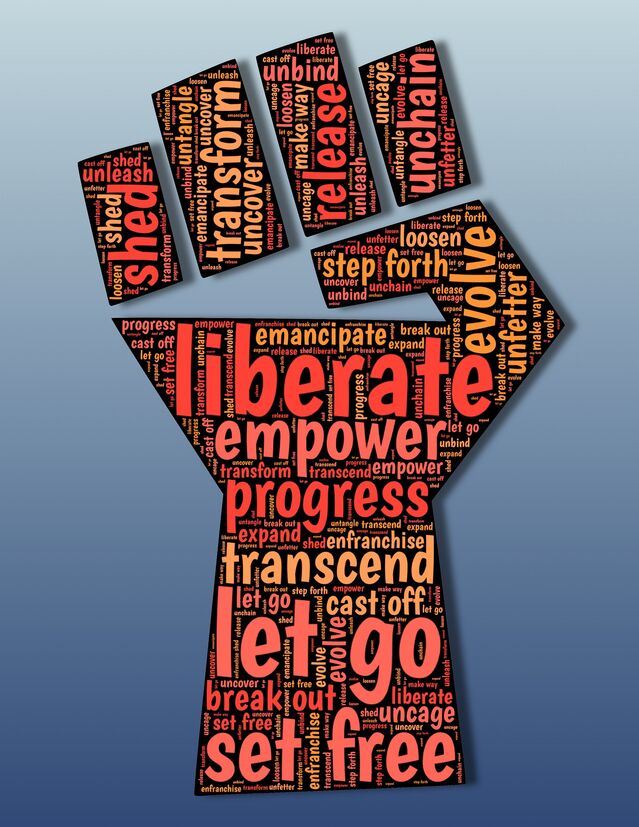Bias
Progressivism Means Liberty and Justice for All
Is the concept of whiteness clouding our judgment on social justice?
Posted July 6, 2021 Reviewed by Abigail Fagan
Key points
- Some progressive activists don't devote as much attention to antisemitism as other forms of prejudice.
- Liberal values should be upheld for all groups facing discrimination.
- The ideology of "whiteness" may contribute to obscuring complex social problems.

These are strange times for the American left. While concentrating efforts on issues related to social justice and anti-bigotry, progressive activists seem to be undermining their own causes by intentionally adopting strategies and rhetoric that are unpopular, which alienates people who would otherwise be our allies. In addition, liberals have inconsistent and sometimes contradictory ideas for what social justice actually means in practice.
This is happening during a time of increased prejudice, harassment, and physical violence toward several ethnic groups, including Jews. Some of this disturbing trend can be explained by recent events, with antisemitic violence connected to the recent violent conflict in the Middle East. While a ceasefire was declared between Israel and Gaza in May, this underlying prejudice hasn’t abated.
Sadly, I don’t get the sense that American progressives are very interested in standing united against antisemitic bigotry. In the wake of George Floyd’s murder, progressives were eager to mobilize for racial justice in all areas of society ranging from policing, schools, and media. Throughout Donald Trump’s presidency, progressives also rallied in support of Hispanic, Muslim, and immigrant populations as well. But there has been a troubling and palpable silence from liberals regarding antisemitic prejudice, which underscores a lack of solidarity in American progressive spaces about what it means to stand for justice.
Because I am ethnically Jewish, I feel personally connected to this issue and strongly compelled to speak out about anti-Jewish prejudice. I have also felt duty-bound towards solidarity and allyship with other racial and ethnic groups who have been targeted for violence and oppression, believing that my fellow liberals felt the same. I thought we all had a common purpose to defend each other, and that “injustice anywhere is a threat to justice everywhere.” But now my view has changed, and I want to use this opportunity to speak to progressives and activists about how we can, as the kids say, do better.
Some have suggested that silence from progressives following prejudice against Jews stems from latent antisemitism. But antisemitism itself is psychologically paradoxical and at times, bizarre, which makes it qualitatively and quantitatively different from other forms of ethnic prejudice. This excerpt from a group of psychologists (Cohen et al., 2009) explains how:
“Jews have been condemned for being seditious communists and for being avaricious capitalists. Fascists in Nazi Germany and in 1980s Argentina accused their nations’ Jews of having hidden loyalties to socialist regimes (Rein, 2003), whereas the Soviet Union regularly persecuted its Jews for harboring secret sympathies for the West (Weitz, 2001). Jews have been chastised as being corruptly cosmopolitan and as being insular traditionalists, as being heretical free-thinkers and as being mystical obscurantists, as being weak, ineffectual, and effete and as stealthily advancing toward worldwide domination (Johnson, 1987). Some scholars of anti-Semitism see a method in these contradictions. Anti-Semitism may serve to create a tangible target upon which non-Jews project their own fears, especially fears that arise during times of social disruption (Cohn-Sherbok, 2002).”
What better way to describe the historical period we’re in than as a time of immense social disruption? Between the pandemic, police violence, attacks on minorities, protests, and an insurrection, it seems we are constantly being reminded about death and despair. This increase in what psychologists refer to as mortality salience may be fueling antisemitism from the political right and the political left. But liberals are ostensibly the ones most concerned about bigotry and oppression of minority groups. Jews are less than 3 percent of Americans, and yet are targeted for over 60 percent of religious-based hate crimes in America according to FBI data. What gives? Why aren’t liberals marching in the streets for their Jewish compatriots?
I suggest the lack of solidarity against all forms of prejudice, including antisemitism, stems from liberals’ conception of “whiteness” as the defining feature of American social conflicts and civil unrest. Through this illogical and unhealthy lens of contemporary social justice, whiteness is not just a skin color, it’s an ideology that can encompass other racial/ethnic groups, including Latin and Asian Americans, and also Jews, who are then categorized as “white-adjacent.”
Violence against Jews is then morally evaluated under a different standard. And other forms of antisemitism, including pernicious stereotypes and conspiracy theories (e.g., that powerful Jews control various industries such as media and banking) are fueled by the belief that American Jews achieve success by adopting more “whiteness.” This has implications for foreign policy as well, with some misguided American political figures trying to tie the Israeli-Palestinian conflict to the social justice movement for Black Americans. Are social justice warriors trying to undermine and marginalize Jews?
This must stop. Not just antisemitism, but the destructive beliefs surrounding skin-color ideology that some misguided activists are using to justify bigotry toward ethnic minorities. It’s morally wrong and runs counter to the core values of the progressive movement. Perhaps this type of behavior is partly the reason why disaffected minority voters are shifting away from liberalism and the Democratic party.
It is my hope that activists will stand united against all forms of intolerance and bigotry, rather than selectively focusing efforts based on the pseudo concept of “whiteness.”
I am heartened to see honorable liberals such as Rep. Ritchie Torres speak openly and honestly about the undercurrent of antisemitism in American political culture. In his words, “we have to be careful not to reduce everything to an overarching narrative. Every country, every conflict has its own history, its own particularity, its own complexity, and none of that should be ignored in favor of an overarching ideology.”
In progressive activist circles, freedom and justice have long been core values. But those values can only be upheld if they are applied to all people who are targeted for discrimination. This is where the modern American left has gone awry. If social justice minded folks continue to insist that “whiteness” is the core problem facing American society, then this will continue to blind us to the actual complexities in our culture. No one has a monopoly on suffering. Let’s not let identity-based differences stand in the way of our shared progressive dreams.
References
Cohen, F., Jussim, L., Harber, K. D., & Bhasin, G. (2009). Modern anti-Semitism and anti-Israeli attitudes. Journal of Personality and Social Psychology, 97(2), 290.
Hersh, E., & Royden, L. (2021). Antisemitic Attitudes Across the Ideological Spectrum. Manuscript downloaded from: https://www.eitanhersh.com/uploads/7/9/7/5/7975685/hersh_royden_antisem…




